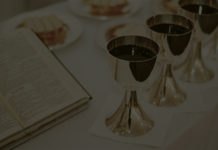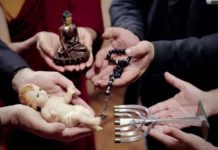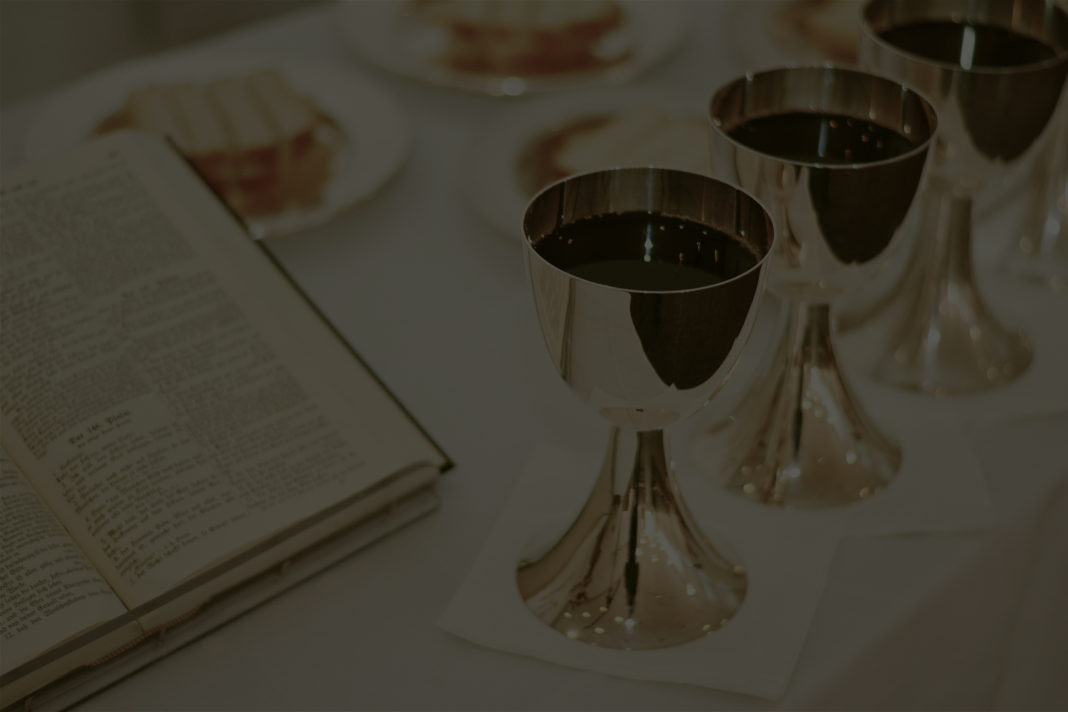Deuteronomy 14:26
You may spend the money for whatever your heart desires: for oxen, or sheep, or wine, or strong drink, or whatever your heart desires; and there you shall eat in the presence of the LORD your God and rejoice, you and your household.
Probably one of the most misunderstood passages in the Bible is the verse above. A superficial reading seems to indicate that buying and consuming not only wine but strong drink as well is fully condoned by the Bible. But there are some indications that this passage requires more than a superficial reading if one wants to truly understand the verse. For instance, one should find it at least a little strange that the money used to buy this strong drink and wine was to be taken from the tithe, the money set aside for the support of both the temple it’s priests, which is in fact prohibited elsewhere in the Bible. And then there is the odd requirement that the individual buying the strong drink and wine be sure to invite some priests along to participate in the festivities.
I find it hard to believe that any thinking Christian wouldn’t see that this verse clearly requires more than a casual reading… And yet countless Christians and church leaders have continued to rely on it as their “locus classicus” in establishing their claim that the moderate consumption of alcohol by members of the church is fully supported by the Bible.
lo·cus clas·si·cus
/lōkəs ˈklasəkəs/
noun
1. a passage considered to be the best known or most authoritative on a particular subject.
So, lets get straight to it and figure out what exactly God is communicating to us in this passage.
The first thing we’ll need establish is that the Bible nowhere condones the casual use of alcohol in anyway, in fact it makes the opposite case, that those who do so are “not wise”. Notice the following verses.
Proverbs 20:1
Wine is a mocker, strong drink a brawler, And whoever is intoxicated by it is not wise.
Isaiah 5:11
Woe to those who rise early in the morning that they may pursue strong drink, Who stay up late in the evening that wine may inflame them!
The second point we need to make is that priests or Levites were strictly prohibited from ever consuming either wine or strong drink!
Leviticus 10:8-9
The LORD then spoke to Aaron, saying, Do not drink wine or strong drink, neither you nor your sons with you, when you come into the tent of meeting, so that you will not die, it is a perpetual statute throughout your generations.
With those three verses alone I think one can make the case that either God is contradicting Himself or we are seriously missing something here. Usually, when these are the choices we’re faced with it’s safe to assume we’re seriously missing something here.
In this case what we’re missing is the context. Deuteronomy 14:22-29 constitutes a complete set of instructions for how to tithe when one was to far from the temple to make the journey. In these cases verse 23 tells us that God allows the individual to convert his grain, oil, firstborn of the herd or flock, and new wine offerings into money (note Isaiah 65:8 states “new wine is found in the cluster” i.e. new wine is fresh grape juice) which can then be easily transported to “the place where He chooses to establish His name”. Once one has arrived at this place verse 26 instructs the traveler to then reconvert that money back into animals, wine or drink. And this is where the most critical question about this series of steps must be asked. What did they do with it after they bought it?
Well, the book of Leviticus gives us pretty specific details about what was supposed to happened next. First, Leviticus 2:9,10 tells us that the repurchased grain and oil it would have been partially consumed on the alter as a sacrifice and the rest kept for the support of the priesthood. As for the animal sacrifices, that was another matter. Unless the sacrifice was specifically a burnt offering where the entire animal was consumed by fire on the altar, only its fat and organs would be offered and burnt on the alter. As for the rest of the meat, it was to be roasted and eaten before the beginning of the third day (Leviticus 19:5,6). Now here’s the thing, if you are sacrificing more than a few animals, that leaves you with a whole lot of meat! And only two days to eat it! So what do you do with all that meat, assuming you didn’t want to waste it? Well the implication seems to be that you were supposed to share it. You would invite everyone to come and share in what God had blessed you with, essentially you ended up throwing a really big barbecue party.
As interesting as that may (or may not) be, the question still remains… even if the wine was in fact only fresh grape juice, what was to be done with all that strong drink?
The book of Numbers actually makes it quite clear.
Numbers 28:7
Then the drink offering with it shall be a fourth of a hin for each lamb, in the holy place you shall pour out a drink offering of strong drink to the LORD.
Instead of contradiction, we instead find a clear and simple explanation! The strong drink was poured out as a drink offering, and not consumed by the one making the offering. No contradictions, just as we should expect.
Although I believe we have answered the question we started with I would like to offer one final thought. The word consistently translated throughout all the verses above as “strong drink” is the Hebrew word “shekar”, and despite that fact that you almost always find the word “strong” translated with it, you may find it interesting that this word is added in by the translators. In many cases the word “shekar” means a drink that has become alcoholic, however it doesn’t always have to be translated that way. It can also have the meaning of something “sweet”, and there is some evidence that our word sugar comes from “shekar”. I share this last bit of information because despite the consistency with which Bible translators use strong drink for “shekar” I am not necessarily convinced that that is what the Bible has in mind here. For the sake of brevity I’ll share just one of several very good reasons why this opinion is worth considering. History tells us that around the 4th Century A.D. there was a drink that was made by boiling down honey-comb, this would have no doubt been a very sweet concoction. Saint Jerome who composed the Latin Vulgate version of the Bible tells us that this very sweet drink was among one of the many drinks covered by the word “shekar”. Given that “new wine” is in fact simply fresh grape juice in the Bible(Is 65:8), perhaps the “shekar” also was used to represent some other sort of sweet but non-alcoholic drink as well. I can’t say for certain of course, but it’s interesting to think about.











